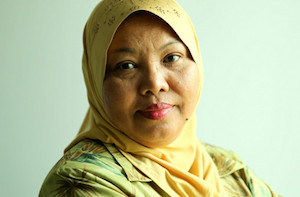Opposition supporters expect Pakatan Harapan to be more than a political vehicle to win elections
Zubaidah Abu Bakar, The Rakyat Post
OPPOSITION supporters wondering what Pakatan Harapan is and how different this new political pact is from the defunct Pakatan Rakyat, worry no more.
There will be answers coming that may well dispel their worries when the hastily set up Opposition alliance unveils its agreement on co-operation on Saturday.
The absence of common platform (document) had cast doubts over a workable alliance between Parti Keadilan Rakyat (PKR), the DAP and PAS’ splinter Parti Amanah Negara (Amanah); this is so because the players are the same group of people who were in Pakatan Rakyat and the failed Barisan Alternatif.
The only difference is that Amanah is being represented in Pakatan Harapan by the less conservative former PAS leaders. It is still an Islamic party though.
Pakatan Harapan is thus being perceived by many people as being a rebranded political pact that has taken up a new name; it has same old faces trying to regain the trust of Opposition supporters following Pakatan Rakyat’s failure.
When PKR and DAP hastily announced last September that they have joined forces with Amanah, they failed to assure supporters that the new pact will not turn out to be another Pakatan Rakyat which fell apart due to disagreements among its partners.
Pakatan Rakyat was also hastily cobbled soon after the 2008 general election to enable PKR, DAP and PAS to jointly govern the states they jointly won in the national poll. It has a common policy framework in place, but the adoption of the concept of agreeing to disagree had created a lot of conflicts over the years.
The pact ceased to function in June last year following months of disagreements which arose mainly over the PAS’ push for the implementation of an Islamic penal code in Kelantan.
The Barisan Alternatif also failed because DAP could not tolerate PAS’ insistence on making Malaysia an Islamic state and the party left BA in 2001.
PKR, DAP and Amanah had rushed through the formation of Pakatan Harapan, which they hope will finally consolidate the country’s opposition forces.
Can this new alliance survive the distance when all three partners have different ways of thinking?
It depends much on how strong their commitment is towards the yet to be sealed “common document”, which among others, will spell out steps on decision making and how the parties are to resolve internal differences.
Failure to resolve internal differences fast and nip problems in the bud were factors responsible for the demise of the last two Opposition pacts.
While it is true all three Pakatan Harapan parties have one common objective, that is, to defeat Barisan Nasional in the GE14, it is how well they manage to address arising issues that will determine Pakatan Harapan’s lifespan.
As it is today, although the DAP-led Penang government and the PKR-led Selangor government function well, conflict of opinions over policies continue to threaten unity, especially in Selangor where PAS is still part of the government.
In the words of Opposition leader Datuk Seri Dr Wan Azizah Wan Ismail, the agreement would contain seven main clauses that would steer the coalition in facing the general election, including mechanisms for decision making, resolving internal differences, seat allocation and disciplinary action.
“We believe this is a big step that shows the maturity of the three parties which are putting aside their political differences to reach this agreement,” she had told a press conference after a Pakatan Harapan presidential council meeting at Amanah headquarters on Tuesday.
Opposition supporters are not expecting Pakatan Harapan to be mere political vehicle to win elections. They expect more than that.


